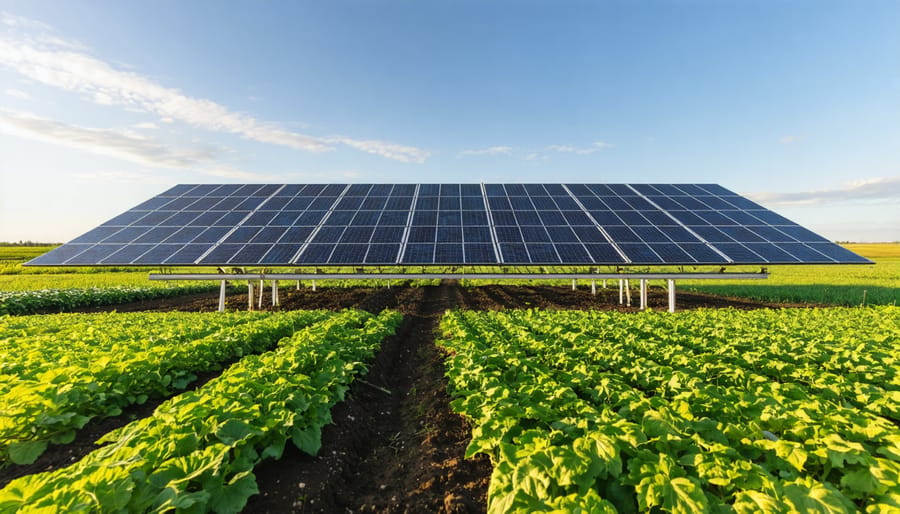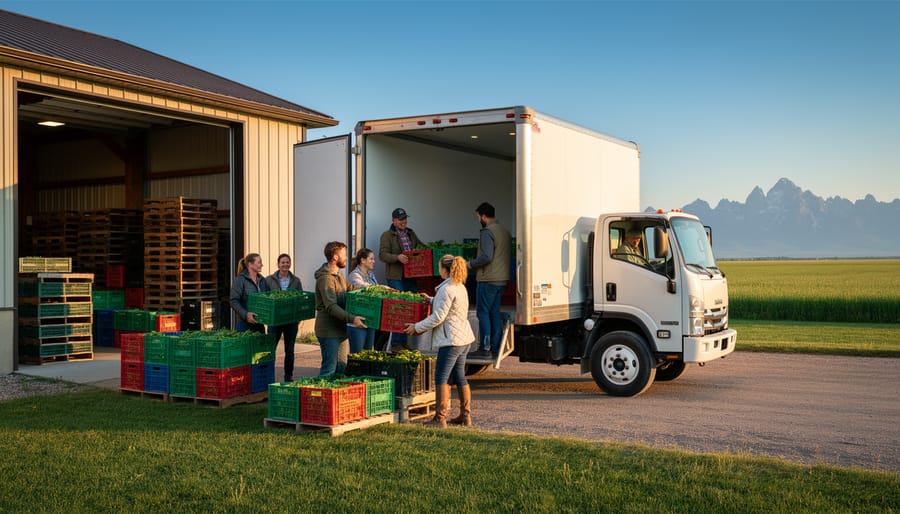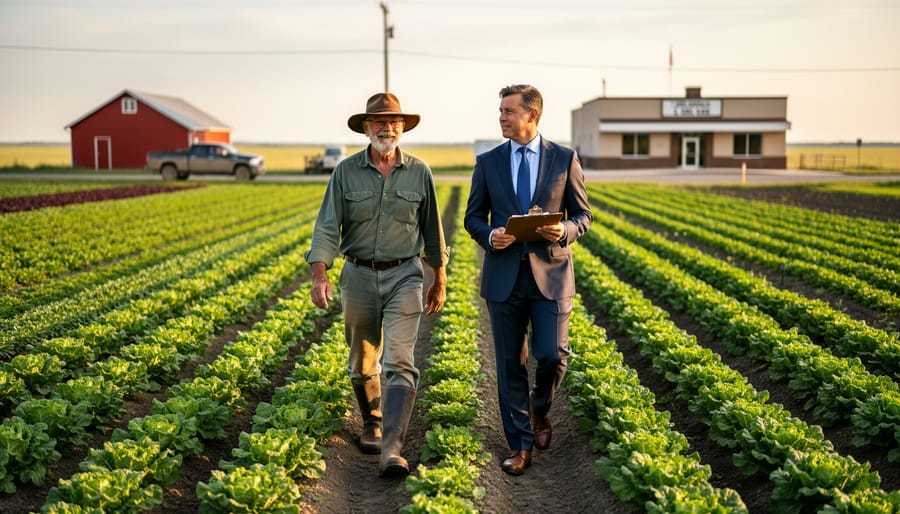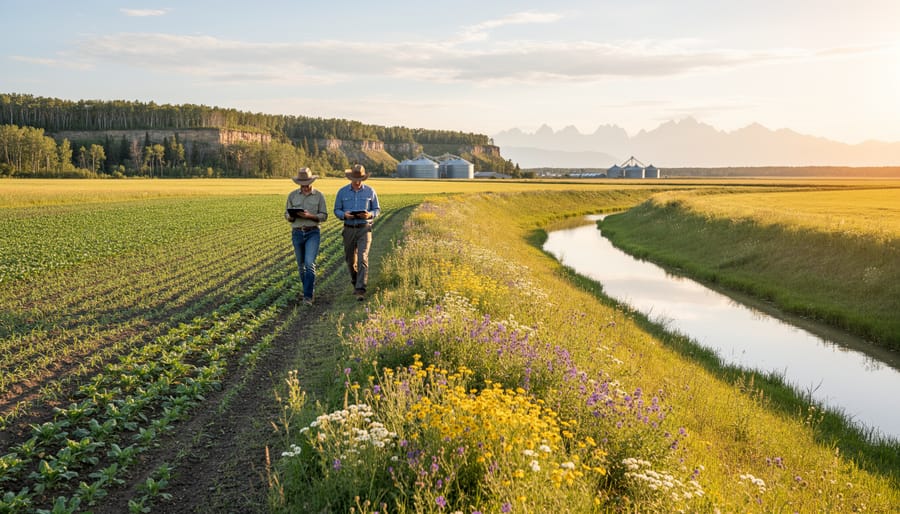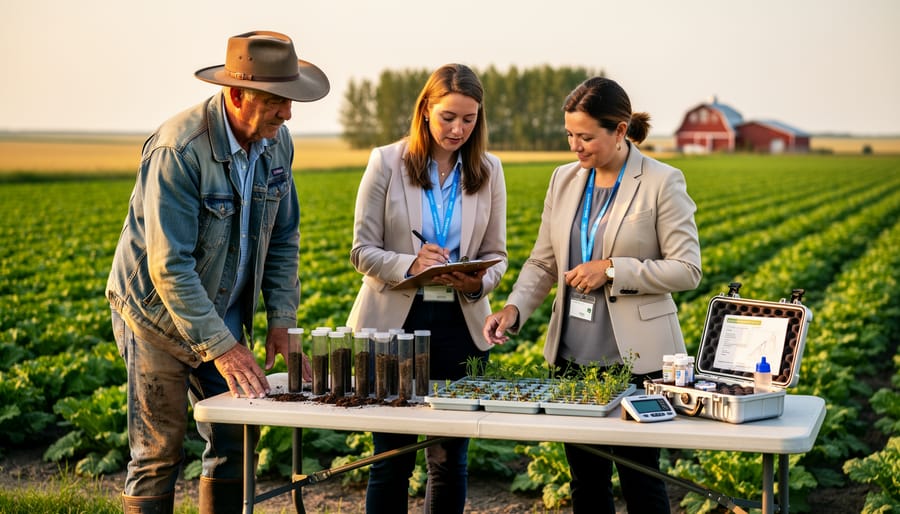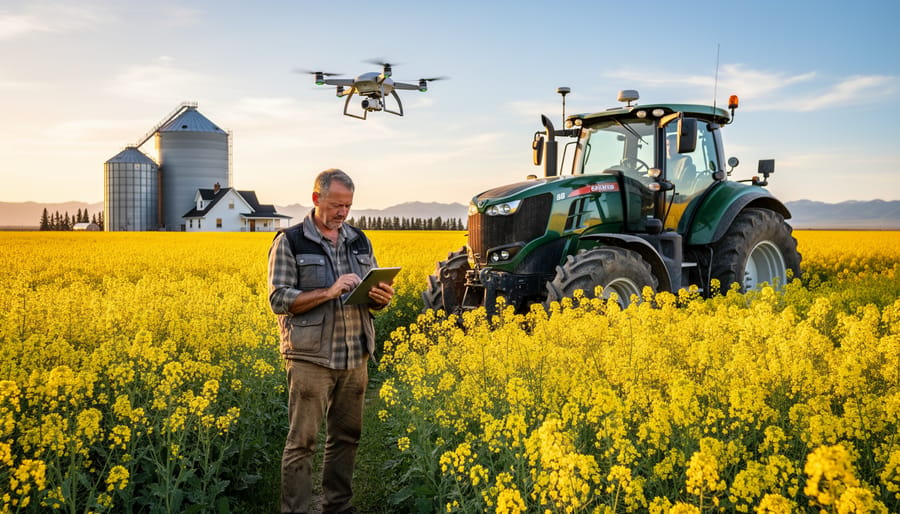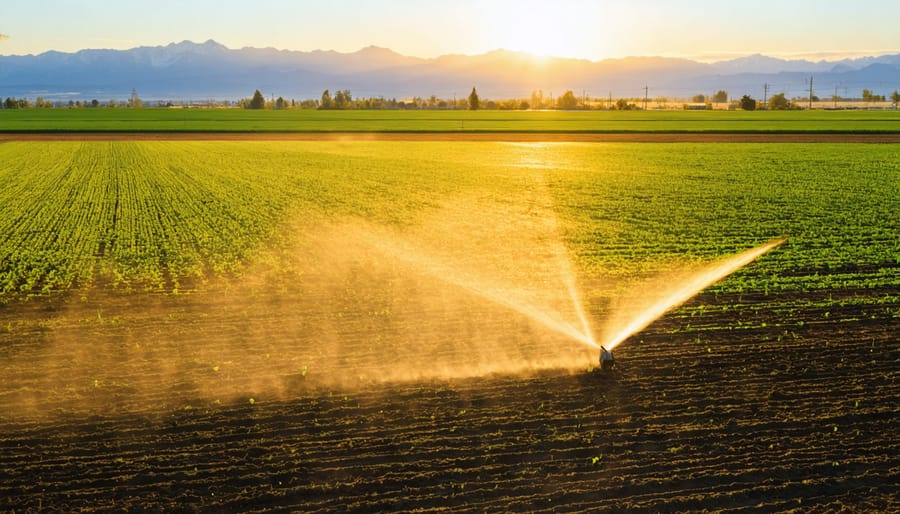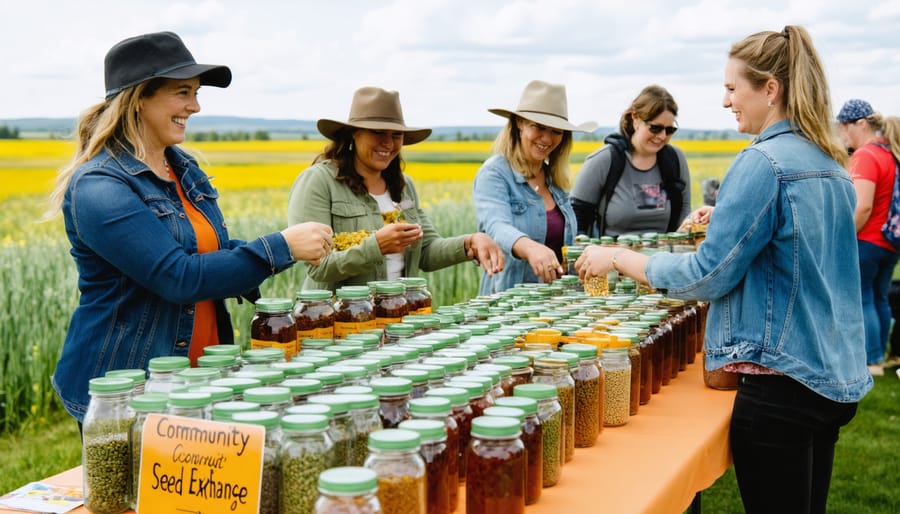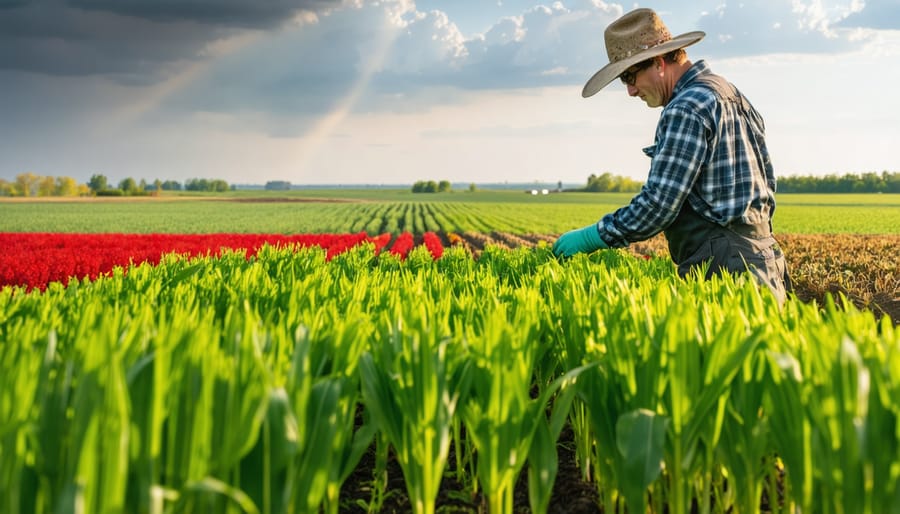Access crucial financial support for organic farmers through Alberta’s network of agricultural assistance programs, offering up to $100,000 in matching grants for sustainable farming initiatives. Navigate the complex landscape of financial aid with confidence, knowing that Canadian farmers have multiple pathways to secure vital funding for their operations. From federal grants supporting organic certification to provincial programs targeting sustainable agriculture, these assistance channels provide essential capital for farm expansion, equipment modernization, and ecological transition projects. Organizations like Farm Credit Canada, Canadian Agricultural Partnership, and regional credit unions have specifically tailored their programs to meet the unique needs of organic producers, ensuring that sustainable agriculture remains financially viable across the prairie provinces. Their streamlined application processes and dedicated agricultural specialists help farmers access the resources needed to build resilient, profitable organic operations.
Federal Government Programs Supporting Organic Agriculture
Agricultural Clean Technology Program
The Agricultural Clean Technology Program offers substantial support for Canadian farmers transitioning to environmentally sustainable practices. This federal initiative provides funding of up to $2 million for individual projects that reduce greenhouse gas emissions and boost energy efficiency in farming operations.
For organic farmers in Alberta, the program specifically supports investments in precision agriculture, energy-efficient equipment, and renewable energy systems. Eligible projects include solar panel installations, smart irrigation systems, and energy-efficient greenhouse technologies. The program covers up to 50% of project costs for most applicants, with higher support available for Indigenous applicants and young farmers.
Local success stories include the Thompson Family Farm near Lethbridge, which received $175,000 to implement a solar-powered irrigation system, reducing their energy costs by 40% annually. Similarly, the Green Acres Organic Coalition in Red Deer secured funding for a community-shared electric tractor program.
To apply, farmers must submit a detailed project proposal demonstrating environmental benefits and economic viability. The application process includes an environmental impact assessment and a business plan. Regular intake periods occur throughout the year, with dedicated support staff available to help applicants navigate the process.
For optimal results, it’s recommended to consult with local agricultural advisors before applying, as they can provide valuable insights into successful application strategies and project planning.

Canadian Agricultural Partnership Initiatives
The Canadian Agricultural Partnership (CAP) offers substantial support through various Canadian agricultural grants specifically designed for organic transition and certification. In Alberta, farmers can access up to $10,000 through the Organic Certification Stream, which covers 75% of certification costs during the first three years of transition.
The program includes support for soil testing, organic production planning, and consultation with certified organic specialists. Farmers can also receive funding for essential equipment modifications needed to meet organic standards. The application process is streamlined through the CAP online portal, with intake periods typically opening in April and October each year.
Notable features include reimbursement for organic certification fees, support for record-keeping systems implementation, and funding for organic-specific training programs. First-time applicants receive priority consideration, and Indigenous agricultural producers may qualify for enhanced funding rates.
To maximize success, applicants should prepare detailed transition plans, maintain comprehensive financial records, and connect with their local organic inspector before applying. The program encourages collaborative learning, often supporting group initiatives where multiple farms can share resources and knowledge during the transition process.
Remember to submit applications well before starting your organic transition, as retroactive expenses are typically ineligible for funding.

Alberta-Specific Financial Support Programs
Environmental Stewardship and Climate Change Programs
Alberta’s commitment to sustainable agriculture is reflected in several environmental stewardship programs that provide financial support to farmers transitioning to eco-friendly practices. The Environmental Farm Plan (EFP) Grant Program offers up to $50,000 per project for implementing sustainable farming methods, including soil conservation, water management, and biodiversity enhancement.
The Canadian Agricultural Partnership (CAP) in Alberta provides substantial funding for climate-smart agricultural practices. Farmers can access grants covering up to 70% of costs for projects that reduce greenhouse gas emissions, improve energy efficiency, or enhance carbon sequestration in soil.
Notable initiatives include the Agricultural Water Management Program, offering funding for irrigation efficiency improvements, and the Farm Energy and Agri-Processing Program, which supports the installation of solar panels and energy-efficient equipment. These programs typically cover between 30% and 50% of eligible project costs.
For organic farmers, the Organic Agriculture Research and Innovation Program provides specialized grants of up to $75,000 for implementing regenerative farming practices. Success stories include the Watson Family Farm in Red Deer, which received funding to establish a comprehensive composting system and implement rotational grazing practices.
Applications are accepted year-round, with funding distributed on a first-come, first-served basis. Farmers are encouraged to work with local agricultural fieldmen or environmental specialists to strengthen their applications and ensure alignment with program objectives.
Alberta Organic Producer Assistance
Alberta’s organic producers can access various financial support programs through provincial initiatives and local organizations. The Alberta organic farming initiatives provide comprehensive assistance for both new and established organic operators, including funding for certification costs and market development activities.
The Organic Agriculture Development Fund offers grants covering up to 75% of organic certification expenses, with a maximum of $1,000 per farm annually. Additional support is available through the Canadian Agricultural Partnership (CAP) in Alberta, which provides funding for organic transition planning, soil testing, and equipment modifications necessary for organic production.
Local agricultural societies and producer groups often provide matching funds for marketing initiatives and educational programs. The Alberta Organic Producers Association (AOPA) facilitates mentorship connections and offers reduced membership fees for first-year organic farmers, along with access to shared equipment programs and bulk purchasing opportunities.
Farmers can also benefit from the Regional Organic Development Initiative (RODI), which provides marketing support, business planning assistance, and networking opportunities. This program helps producers connect with organic buyers and develop sustainable market channels, with funding available for promotional materials and trade show participation.
To access these supports, producers should contact their local agricultural fieldman or AOPA representative for application guidance and deadline information.
Non-Governmental Support Organizations
Organic Industry Investment Programs
The private sector offers diverse funding opportunities for organic farmers looking to expand or transition their operations. Several Canadian investment firms and agricultural corporations have developed specialized programs targeting organic production. For example, Farm Credit Canada’s sustainability-focused lending program provides flexible financing options with competitive interest rates specifically for organic initiatives.
Investment partnerships are becoming increasingly popular, with organizations like Organic Alberta connecting farmers with angel investors and impact-focused venture capital firms. These partnerships often combine financial support with mentorship and market access opportunities, creating a comprehensive support system for organic producers.
Local food cooperatives and organic processors frequently offer contract growing arrangements and advance payment programs, providing farmers with stable income streams and market security. The Canadian Organic Trade Association maintains a network of private investors interested in supporting organic agriculture through various financing models.
Notable success stories include the Prairie Organic Development Fund, which matches private investors with organic farmers in Western Canada. They’ve helped facilitate over $5 million in investments since 2018, supporting everything from land acquisition to processing facility development.
Farmers interested in private funding should prepare detailed business plans and organic transition strategies to attract potential investors. Many organizations offer guidance in developing these materials and making valuable connections within the organic industry network.
Agricultural Co-operatives and Credit Unions
Agricultural co-operatives and credit unions across Canada offer specialized financial services tailored to organic farmers’ unique needs. Organizations like Farm Credit Canada and local credit unions understand the cyclical nature of organic farming and provide flexible lending options that align with harvest schedules.
The Alberta Treasury Branch (ATB) Financial offers dedicated agricultural banking services, including operating lines of credit specifically designed for organic transition periods. These loans typically feature lower interest rates and more flexible repayment terms compared to traditional banks.
Several organic farming co-operatives in Alberta have established their own credit programs, enabling members to access short-term financing for seed purchases, equipment upgrades, and certification costs. The Canadian Worker Co-operative Federation also provides funding opportunities through their revolving loan program.
Notable examples include the Organic Alberta Co-operative, which facilitates peer-to-peer lending networks, and the Peace Region Organic Producers Association, offering microloans up to $10,000 for small-scale organic projects.
Members of these organizations often benefit from additional perks such as group purchasing power, shared equipment programs, and mentorship opportunities. Most co-operatives also provide financial literacy workshops and business planning assistance to help farmers maximize their funding potential.
Application Success Strategies
Documentation and Eligibility Requirements
When applying for financial assistance programs, proper documentation is crucial for a successful application. Most organizations require proof of farm ownership or operation, recent tax returns, and a detailed business plan. For government programs, you’ll need a valid Farm Business Registration number and proof of Canadian citizenship or permanent residency.
The organic certification process documentation is essential for programs specifically targeting organic farmers. Keep copies of your certification papers, transition plans, and inspection reports readily available.
Common eligibility requirements include:
– Minimum two years of farming experience
– Location within eligible regions (particularly for Alberta-specific programs)
– Annual farm income thresholds
– Clear demonstration of financial need
– Commitment to environmental stewardship
– Detailed project proposals for specific grants
For new farmers, additional requirements may include completion of approved business management courses or workshops. Environmental programs often require soil testing results and conservation plans. Keep digital copies of all documents organized in a dedicated folder, and maintain a checklist of program-specific requirements.
Remember to verify submission deadlines and renewal requirements for ongoing programs. Many organizations offer application support services to help you gather and prepare the necessary documentation. Consider working with a farm financial advisor who can help ensure your application package is complete and compelling.
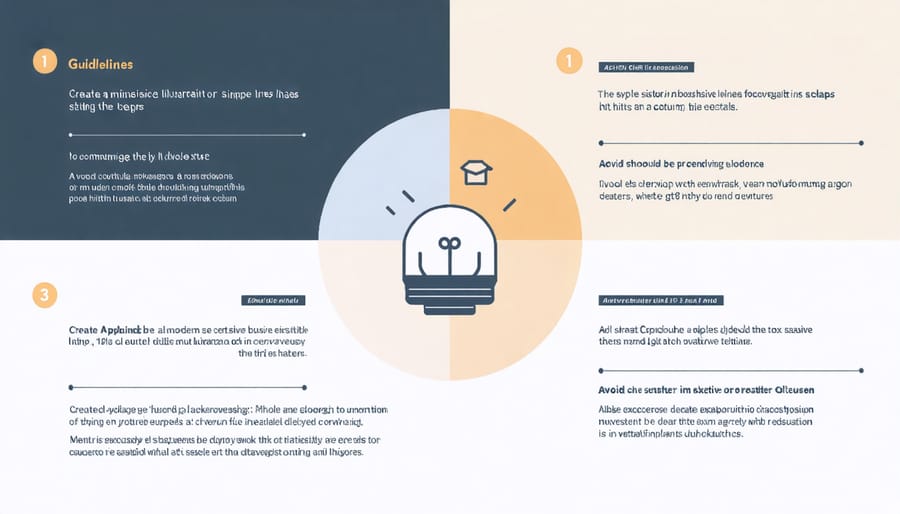
Building Strong Applications
Building a strong funding application can significantly increase your chances of securing financial assistance for your organic farming operation. Start by clearly outlining your farm’s history, current operations, and future goals. Include specific details about your acreage, current production methods, and how the funding will contribute to your farm’s sustainability and growth.
Documentation is crucial – gather your financial records, business plans, and any certifications you hold. Many funding organizations look favorably upon farmers who can demonstrate sound financial management and a clear vision for their operations. Consider including soil test results, crop rotation plans, and market analysis to strengthen your case.
When writing your proposal, focus on measurable outcomes. Instead of saying “improve soil health,” specify “increase organic matter content by 2% over three years through cover cropping.” Quantifiable goals show funders you’ve thought carefully about your project’s impact.
Personal stories matter too. Share your connection to the land and your commitment to organic practices. Many Alberta farmers have found success by highlighting how their projects benefit both the environment and local community.
Remember these key tips:
– Follow application guidelines exactly
– Meet all deadlines with time to spare
– Include realistic budget projections
– Demonstrate market demand for your products
– Show how the funding fills a specific need
– Highlight your experience and qualifications
– Include letters of support from industry partners
Before submitting, have someone with grant writing experience review your application. Many agricultural organizations offer free proposal review services to their members.
The journey to sustainable and organic farming doesn’t have to be a solitary one. Throughout Alberta and across Canada, numerous organizations stand ready to support farmers in their transition to organic practices and help strengthen existing organic operations. From government grants and low-interest loans to private foundation funding and cooperative initiatives, the opportunities for financial assistance are diverse and accessible.
Remember that successful funding applications often come down to thorough preparation and clear demonstration of your farm’s potential impact. Take time to develop a comprehensive business plan, gather required documentation, and connect with local agricultural advisors who can guide you through the application process.
Don’t hesitate to reach out to multiple organizations, as many farmers successfully combine different funding sources to achieve their goals. The organic farming community in Alberta is known for its collaborative spirit, and experienced organic farmers are often willing to share their insights about securing financial support.
As organic agriculture continues to grow in Canada, new funding opportunities emerge regularly. Stay connected with local farming associations, attend agricultural workshops, and subscribe to industry newsletters to stay informed about the latest financial assistance programs.
Your transition to organic farming or expansion of existing organic operations can become more achievable with the right financial support. Take the first step today by exploring the programs that align with your farm’s needs and vision for the future.

